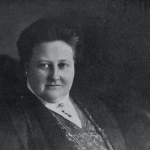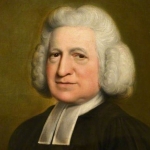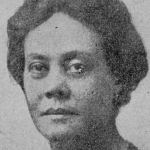I
I wandered through a house of many rooms.
It grew darker and darker,
Until, at last, I could only find my way
By passing my fingers along the wall.
Suddenly my hand shot through an open window,
And the thorn of a rose I could not see
Pricked it so sharply
That I cried aloud.
II
I dug a grave under an oak-tree.
With infinite care, I stamped my spade
Into the heavy grass.
The sod sucked it,
And I drew it out with effort,
Watching the steel run liquid in the moonlight
As it came clear.
I stooped, and dug, and never turned,
For behind me,
On the dried leaves,
My own face lay like a white pebble,
Waiting.
III
The dried seed-vessels of “honesty”
Were stacked in front of me.
Dry, white years slipping through my fingers
One by one.
One by one, gathered by the Croupier.
“Faites vos jeux, Messieurs.”
I staked on the red,
And the black won.
Dry years,
Dead years;
But I had a system,
I always staked on the red.
IV
I painted the leaves of bushes red
And shouted: “Fire! fire!”
But the neighbors only laughed.
“We cannot warm our hands at them,” they said.
Then they cut down my bushes,
And made a bonfire,
And danced about it.
But I covered my face and wept,
For ashes are not beautiful
Even in the dawn.
V
I followed a procession of singing girls
Who danced to the glitter of tambourines.
Where the street turned at a lighted corner,
I caught the purple dress of one of the dancers,
But, as I grasped it, it tore,
And the purple dye ran from it
Like blood
Upon the ground.
VI
I wished to post a letter,
But although I paid much,
Still the letter was overweight.
“What is in this package?” said the clerk,
“It is very heavy.”
“Yes,” I said,
“And yet it is only a dried fruit.”
VII
I had made a kite,
On it I had pasted golden stars
And white torches,
And the tail was spotted scarlet like a tiger-lily,
And very long.
I flew my kite,
And my soul was contented
Watching it flash against the concave of the sky.
My friends pointed at the clouds;
They begged me to take in my kite.
But I was happy
Seeing the mirror shock of it
Against the black clouds.
Then the lightning came
And struck the kite.
It puffed—blazed—fell.
But still I walked on,
In the drowning rain,
Slowly winding up the string.



















Comment form: